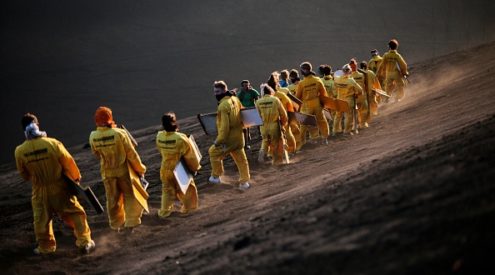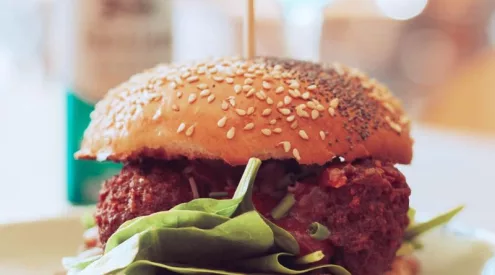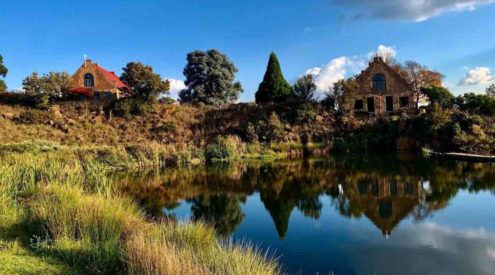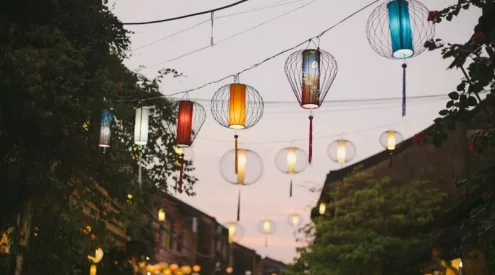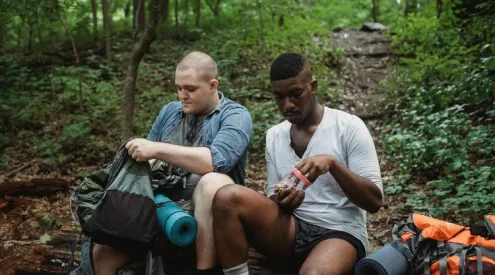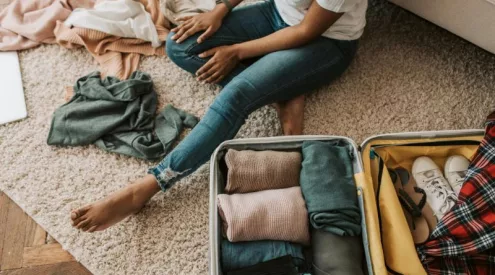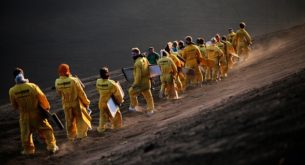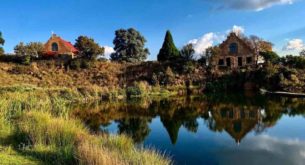Thinking of taking a bush break with your tent in tow? Whether you’re camping solo or with family in Mzansi, there are several important safety points to take note of before jumping into the journey.
Here are 7 things you need to know about camping safely in South Africa:
1. Your campgrounds should be tried and true
If you’re a frequent camper in South Africa, you’ll already know the importance of ensuring that your camping grounds are safe and secure. Campers can be easy targets for criminals, so it’s of the utmost importance to find camping grounds that are either guarded by security, or within a nature reserve that is protected and monitored.
Your best bet is to look for tented camps that are run by lodges, or to book a camping spot within a reserve. According to Happy Campers, these are campsites frequented by locals:
Mahai River Campsite, Royal Natal National Park in the Drakensberg valley.
Storms River Mouth Rest Camp, Garden Route in Tsitsikamma National Park.
Mabibi Beach Camp, Elephant Coast at Hulley Point on the Elephant Coast.
Nature’s Valley Rest Camp, Garden Route at Groot River at Nature’s Valley Rest Camp on the Garden Route.
Skilpad Rest Camp, Namaqualand along the coast at Skilpad Rest Camp, Namaqualand.
Tietiesbaai Beach Camp, West Coast at Tietiesbaai Beach Camp situated inside Cape Columbine Nature Reserve.
2. Inform friends and family of your exact location
Once you’ve found safe camping grounds, inform friends and family who won’t be making the journey with you of your exact location. This adds an extra layer of safety, knowing that your loved ones have eyes on you.
You can do so in several ways. Before arriving, send the location ‘pin’ of your camping grounds to a family member via WhatsApp, or once you arrive, send them a ‘live location’ on WhatsApp, which will allow them to track your exact coordinates, depending on signal quality at your camping grounds.
3. You need a med pack
Ensuring your safety while camping also means being prepared for any unexpected medical scenarios or emergencies.
Bring along a basic med pack that includes over-the-counter meds. You could include meds for allergies – such as Texa or Allergex – as well as Imodium for any potential stomach issues. Paracetamol is a go-to for headaches and pain, while items such as plasters, alcohol wipes and Germolene could protect against scratches, cuts, insect bites, etc.
4. Know your surroundings well
Know your surroundings – including where the nearest town/settlement is, where the nearest hospital is, and where the nearest police station is. This requires familiarising yourself with the shortest route there – especially if your phone’s signal doesn’t pick up in the area. Familiarise yourself with these routes to speed up the process should any medical or safety emergencies occur.
5. Keep your phone charged
Having the advantage of calling for help if and when you need it could save you in the event of an emergency. Signal isn’t always a given at camping sites – especially those that are located deep within the bush – however, having your phone charged at all times is still advisable. If your phone is weak on battery, bring a power bank with you.
6. Hide the valuables, or don’t bring them with you
Unfortunately, valuables that are in sight on your camping grounds could make you a target. It would be advisable not to bring expensive camera or camping gear with you, unless you can properly conceal these items. This includes items such as cameras, wireless speakers, batteries, generators, etc.
7. Find a spot where the signal works
When you arrive at the location of your camping grounds, check your phone’s signal. If it works, great. If the connection is shoddy, take a drive around the area to identify the nearest point where your signal picks up. This could save you in an emergency later on.
All in all, if your camping site is guarded, you won’t have to put up with many of the woes listed above. However, it’s always better to err on the side of caution.



